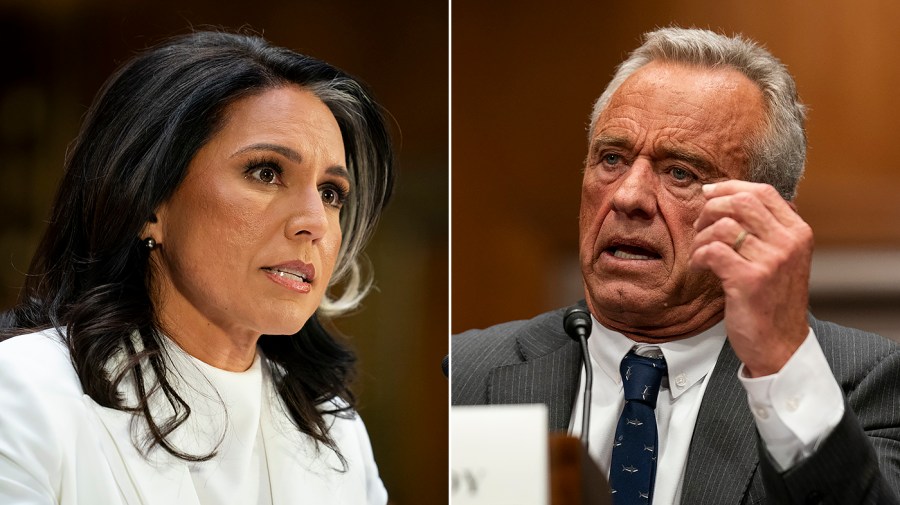President Trump’s controversial Cabinet nominees, Tulsi Gabbard and Robert F. Kennedy Jr., have cleared important committee hurdles in their confirmation processes, marking a significant victory for the Trump administration. This development comes amid a tumultuous political landscape and ongoing debates about the qualifications and views of these nominees.
Key Points:
1. Tulsi Gabbard, nominated for Director of National Intelligence, and Robert F. Kennedy Jr., nominated for Health and Human Services Secretary, have passed their respective committee votes.
2. The advancement of these nominees has sparked intense debate along party lines, with Republicans largely supporting the nominations and Democrats expressing concerns.
3. The full Senate will now consider these nominations, where a simple majority is needed for confirmation.
Background and Context:
Tulsi Gabbard, a former Democratic congresswoman from Hawaii and presidential candidate, has faced scrutiny over her past meetings with Syrian President Bashar al-Assad and her views on foreign policy. During her confirmation hearing, Gabbard defended her loyalty to the United States and dismissed concerns about her being a foreign “asset.”
Robert F. Kennedy Jr., an environmental lawyer and prominent anti-vaccine activist, has been criticized for his stance on vaccines and public health issues. His nomination has raised concerns among public health experts and some lawmakers about the potential impact on U.S. health policy.
Different Perspectives:
Republicans view these advancements as a win for the Trump administration and argue that the nominees bring fresh perspectives to their respective roles. Senator Tom Cotton, for instance, defended Gabbard’s background, stating that FBI checks showed she was “clean as a whistle.”
Democrats, on the other hand, have expressed serious reservations about both nominees. Senator Chris Murphy criticized Kennedy’s past statements on vaccines, questioning his commitment to science-based policies. Similarly, some Democrats have raised concerns about Gabbard’s ability to build trust in the intelligence community given her controversial foreign policy positions.
Potential Impact:
If confirmed, Gabbard and Kennedy would assume critical roles in national security and public health, respectively. Their confirmations could signal a significant shift in U.S. policy directions in these areas. The advancement of these nominees also highlights the ongoing political divisions in Washington and the Trump administration’s willingness to nominate figures who have been criticized by the political establishment.
Why It’s Important:
These nominations and their progress through the confirmation process reflect the broader political dynamics in Washington and the ongoing debate about expertise, ideology, and governance. The outcome of these confirmation processes could have far-reaching implications for U.S. policy in crucial areas such as intelligence gathering and public health.
As the nominations move to the full Senate, they are likely to face continued scrutiny and debate. The final votes will be closely watched as indicators of both the Trump administration’s influence and the balance of power in the Senate.









